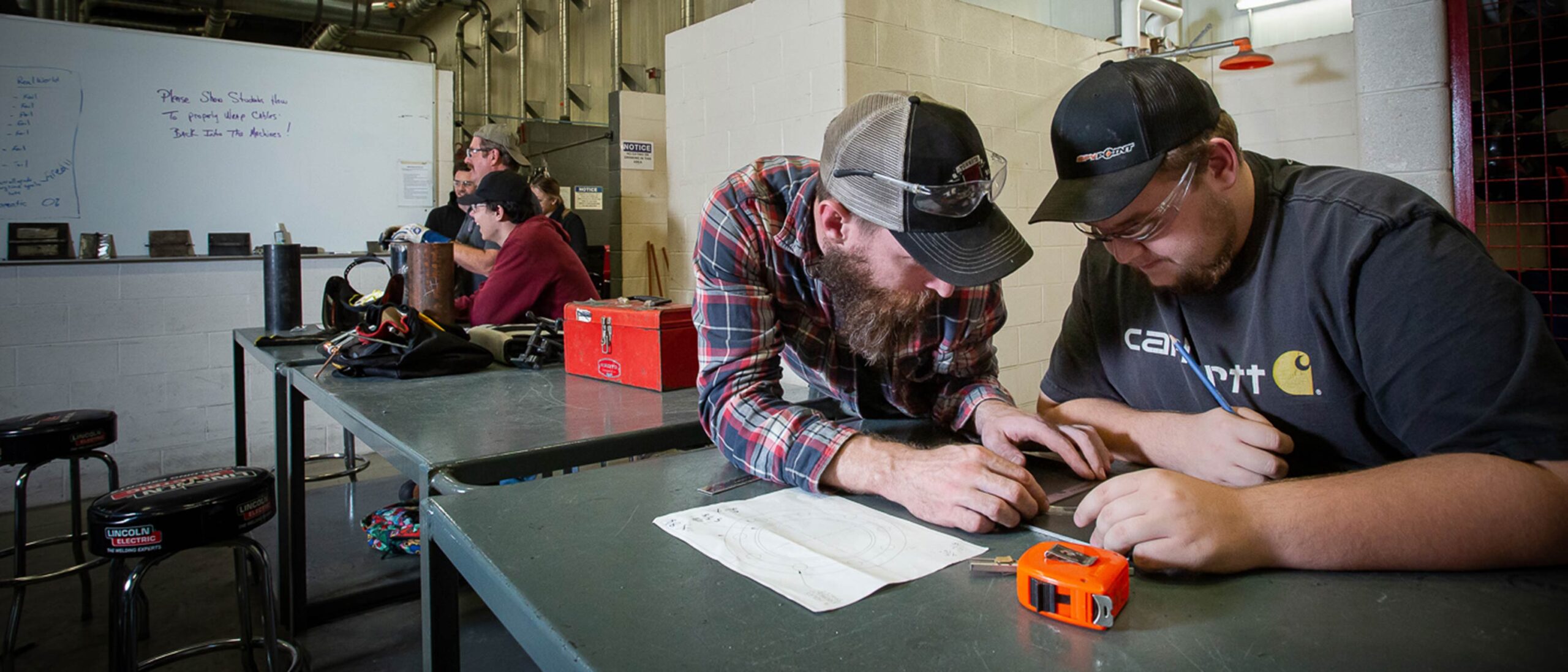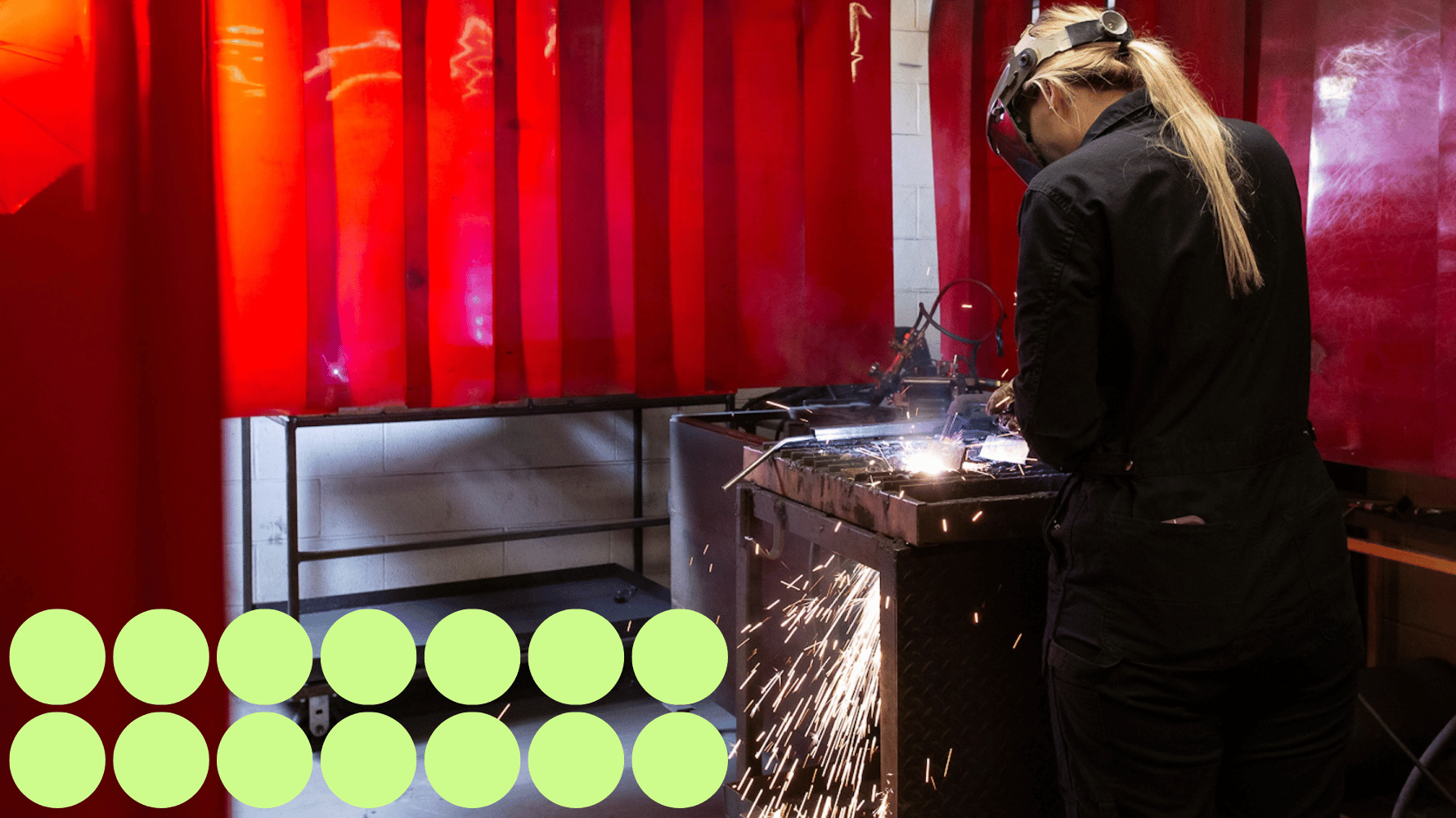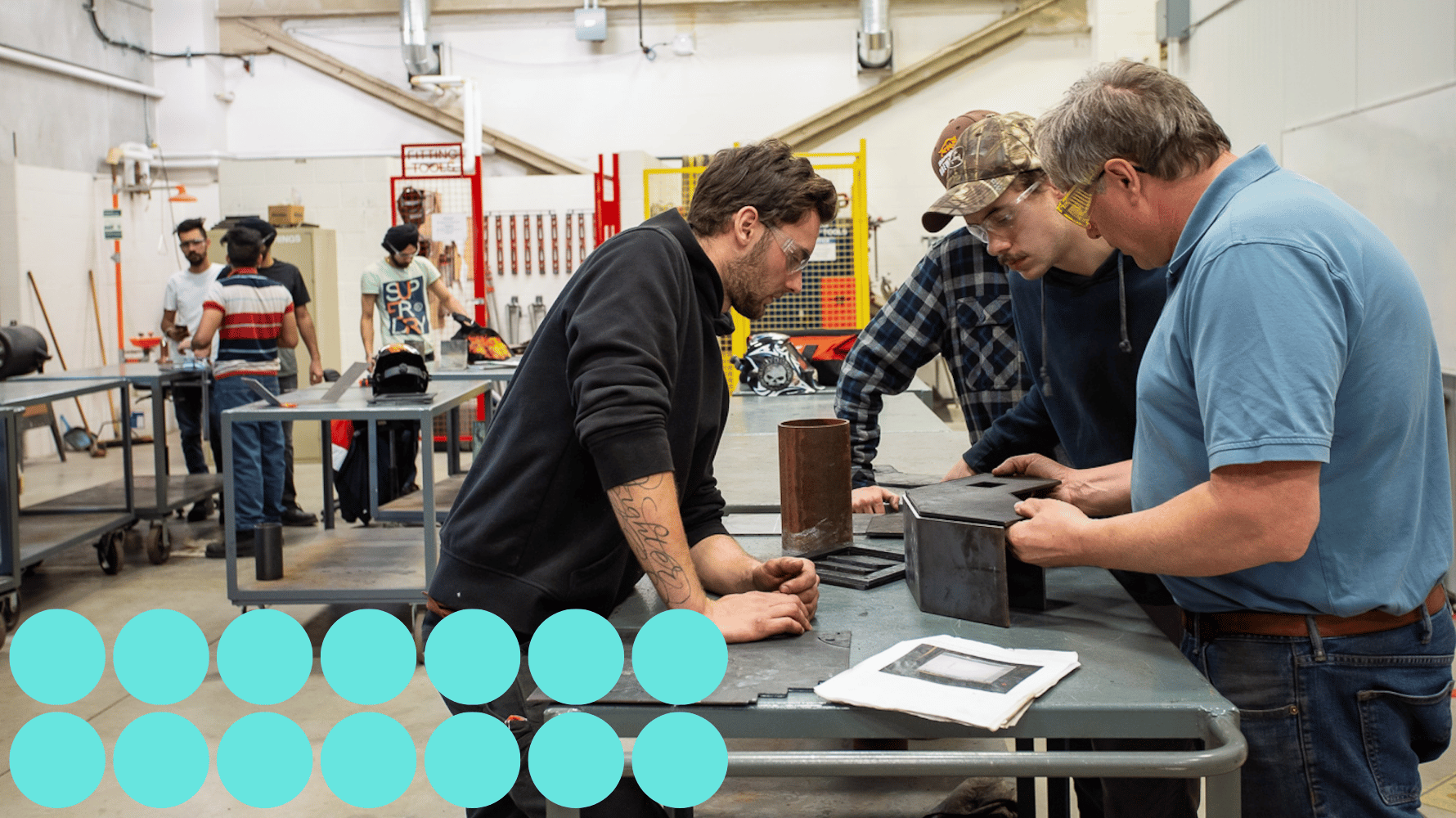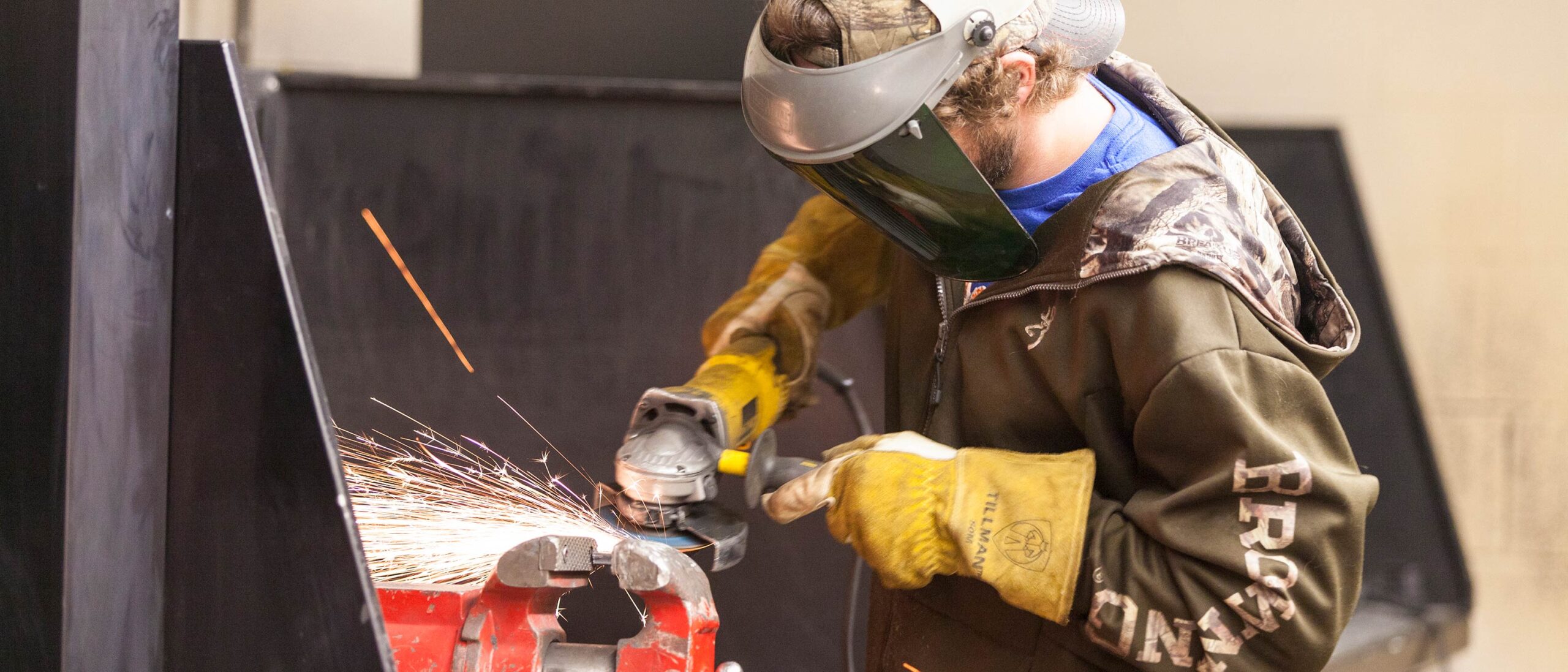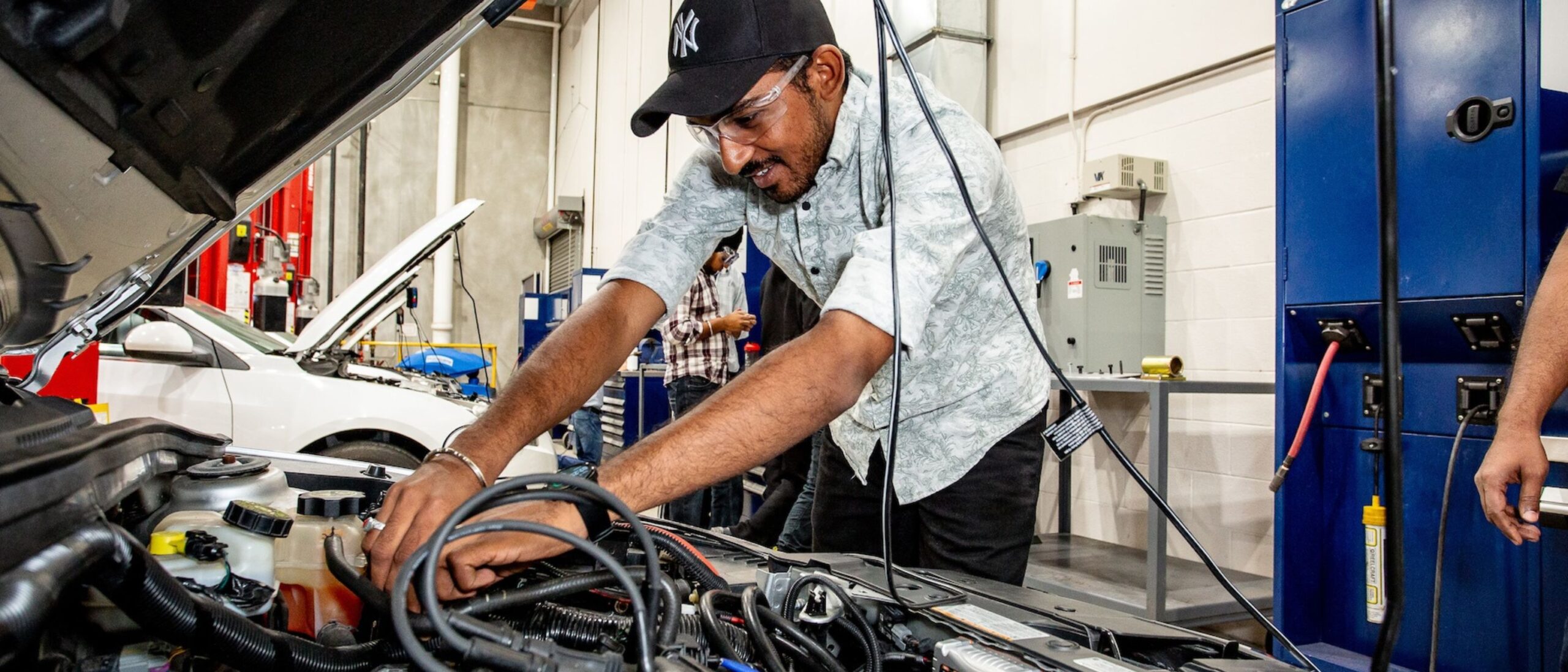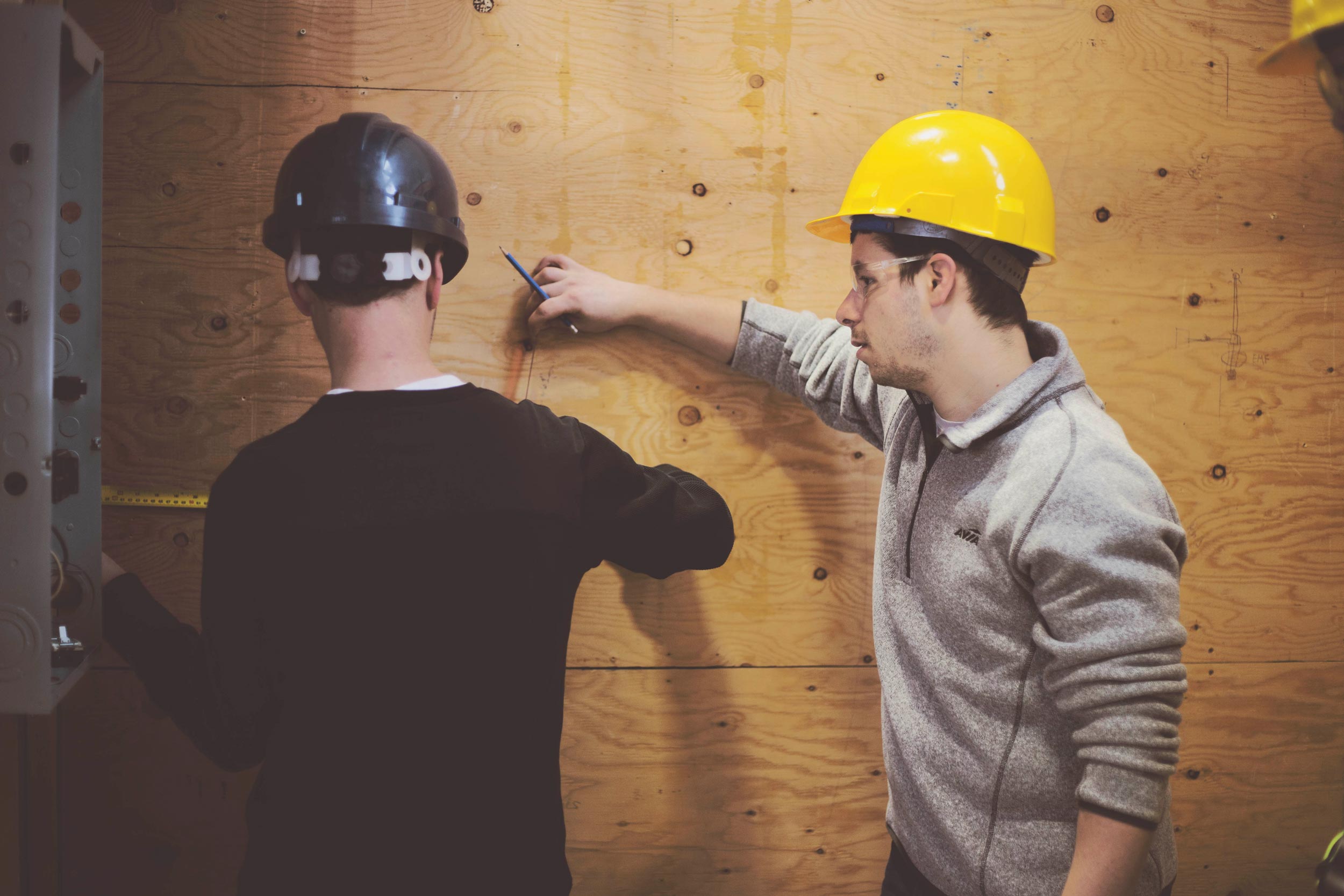Find your career
As a welder/fabricator technician, you will find job opportunities in any industry where metal fabrication and maintenance are performed. Your new skills can take you anywhere:
- You could work in manufacturing, construction, welding or inspection.
- Fabricate mining equipment; machinery; pipelines; bridge truss systems; vehicles such as subway cars and fire trucks; or shipbuilding and aerospace.
- Get an employment edge with certificates you can earn in the program, such as certified welder, structural steel plate fitter, certified welding inspector or welding supervisor.
- You could fast track into an apprenticeship.
Our grads get great jobs
- Technical Advisor, Voith Hydro Inc.
- Welder, Durose Manufacturing Limited
- Welder/Setter, L-3 Communications
- Welder/Fitter, North American Steel
- Level 2 Welding Inspector, Canadian Welding Bureau
- Thermite Welding, Canadian Pacific Railway
- Production/Welding, Honda Canada
- Welder/Fabricator, Material Handling Systems
- Welder/Fabricator, Timmins Trailers
- Welder/Fabricator, McCloskey International Ltd.
Is it for you?
Welders play an essential role in building and maintaining critical infrastructure. This is a good career for people who:
- Show precision in their work.
- Have solid math skills.
- Take pride in doing things right.
- Would like to master a skill that will be in demand wherever they go.

